After nearly 10 years of implementing Law No. 71/2014/QH13 (Law No. 71) amending and supplementing a number of articles of tax laws (effective from January 1, 2015), stipulating that fertilizers, machinery and specialized equipment serving agricultural production are not subject to value added tax (VAT), many shortcomings have been revealed, causing difficulties for the fertilizer industry and hindering development.

The Law on Value Added Tax 2008 stipulates that fertilizer is an item subject to 5% VAT. However, since the application of Law No. 71, fertilizer is not subject to this tax. Although it seems to be a preferential treatment for farmers and production enterprises, in fact, this regulation has caused difficulties because enterprises are not allowed to deduct VAT paid at input, causing production costs to increase, etc.
VAT is necessary.
Director of Bac Hong Safe Vegetable Production and Consumption Cooperative (Dong Anh District, Hanoi City) Nguyen Tuan Hong said that since the application of Law No. 71, fertilizer prices have increased by 30% compared to before, causing production enterprises to not be refunded VAT, they have to add that money to the cost of goods sold. The current situation is becoming more difficult when input materials are scarce, affected by fluctuations and conflicts in the world after the Russia-Ukraine war, fertilizer prices continue to increase. "Removing fertilizers from the list of products not subject to VAT not only does not bring benefits but is also very inappropriate, increasing fertilizer prices. While fertilizers are input materials that play an important role for farmers in all agricultural production activities," Mr. Hong emphasized.
According to Mr. Hong, before 2014, the cost of fertilizer for cultivation on 1 sao of vegetable growing was only about 300 thousand VND, accounting for about 1/3 of the total input cost. Since 2014, fertilizer prices have increased, causing the cost of fertilizer to increase to nearly 500 thousand VND. This means that fertilizer costs have increased by 30-35% and "eroded" the profits of farmers. "If the State does not have appropriate adjustment mechanisms and policies, while fertilizer prices are forecast to continue to increase in the coming time, it will make farmers exhausted, especially small-scale producers," Mr. Hong worried.
Recalling the times when fertilizer prices were "double affected" by world fluctuations in 2022, Mr. Hong said that many vegetable farming households in Bac Hong village abandoned their fields, temporarily stopped production, and switched to working for hire elsewhere, because the selling price of vegetables was not enough to cover input costs, especially the cost of buying fertilizer, while agricultural products and output of agricultural production were extremely unstable.
Another drawback is that since 2014, fertilizer companies have had to cut costs, so they have cut down on programs to support farmers in terms of selling prices or seedling testing activities. As a result, agricultural producers are at a greater disadvantage than before. Therefore, representing the opinions of households in the cooperative, Mr. Hong proposed that fertilizers should be subject to VAT of 5% again to facilitate agricultural production. When fertilizer prices decrease, the profits of farmers and agricultural producers will increase. Large producers will see clear results, helping farmers feel more secure in investing in production.

Similarly, Chairman of the Board of Directors of GC Food Joint Stock Company (GC Food) Nguyen Van Thu said that it is necessary to put fertilizer back under the 5% VAT tax to support farmers in terms of price. At the same time, products related to VAT in agricultural production need to be carefully calculated by the State and the Ministry of Finance to harmonize and ensure profits for farmers as well as agricultural producers in general, avoiding the situation where production is profitable but due to inappropriate tax policies, it becomes a loss. "The policy of fertilizer not being subject to VAT applied in the past is one of the factors that increases fertilizer prices, causing disadvantages for agricultural producers. At times when fertilizer prices are affected by world economic and political factors, the agricultural production industry is even more disadvantaged, reducing business profits," Mr. Thu affirmed.
Promoting technological innovation
A representative of a fertilizer production company in the northern region affirmed: Since the application of Law No. 71, domestic fertilizer production enterprises have suffered great losses. Fertilizer enterprises are not allowed to deduct or refund input VAT on goods and services serving production activities, as well as to invest in expanding production, equipping new technology, machinery and equipment. Next, with the input VAT not being deducted, fertilizer production enterprises are forced to calculate it into production costs, causing product prices to increase, forcing enterprises to increase product prices, reducing consumption leading to low business efficiency.
A representative of the Ministry of Industry and Trade analyzed that during the 10 years of applying Law No. 71, on average each year the market management force discovered and handled about 3,000 cases of fertilizer smuggling and fake fertilizer production. According to calculations, on average, fake fertilizers cause damage of about 200 USD/ha, causing the agricultural sector to lose up to 2.6 billion USD each year, especially dangerous when Vietnamese agricultural products are aiming to export to major markets in the world. In that context, the VAT tax on fertilizers is becoming increasingly urgent, because this is one of the factors that greatly affects the domestic production industry, contributing to the vitality of agriculture. According to the assessment of the Food and Agriculture Organization of the United Nations (FAO), along with factors such as varieties, irrigation, and agricultural mechanization, fertilizers contribute more than 40% to increasing crop productivity. Therefore, the inappropriate policy on VAT on fertilizers that has lasted for nearly 10 years needs to be changed soon.
Since fertilizers have been exempted from VAT, data from the Vietnam Fertilizer Association shows that total import volume has ranged from 3.3 to 5.6 million tons; turnover has reached 952 million to 1.6 billion USD, while total domestic production capacity has been increasingly narrowed, from 3.5 million tons/year (before 2014) to 380 thousand tons/year (since 2015). Dr. Phung Ha, Chairman of the Vietnam Fertilizer Association, said that according to the assessment of the project to enhance the competitiveness of the Vietnamese private sector, on the State side, if a 5% VAT is applied to fertilizers, the budget revenue will increase by 1,541 billion VND, due to the output VAT collection of 6,225 billion VND and input tax deduction of 4,713 billion VND.
Discussing the fertilizer VAT policy, agricultural expert Hoang Trong Thuy said that if the 5% tax on fertilizers is not applied, businesses will have to "suffer" instead of the State and farmers. Fertilizer imports will continue to increase and risk dominating the market, forcing the domestic fertilizer industry to reduce production. The consequences are that businesses are at risk of bankruptcy, workers will lose their jobs, budget revenue will decrease, and there will be a lack of quality domestic fertilizer products. This reality has invisibly gone against the policy of promoting agricultural production development.
If a 5% VAT is applied to fertilizers, some argue that farmers will suffer. But in reality, if we only compare the selling price, this is only a small aspect of the big problem. VAT is collected from the final consumer, so farmers also need equality with other subjects. Agricultural products are in the agricultural production chain, have output products, so by regulation they must be taxed.
According to agricultural experts, the obvious benefit of applying a 5% VAT on fertilizers is that it helps the State better manage this industry, harmonize interests and obligations with the national monetary policy, and ensure fairness of the law. Manufacturing enterprises can deduct input costs, reduce the burden, and create motivation to promote investment in innovation in production technology, increase product quality, meet domestic consumption needs and aim for export, etc.
Source



![[Photo] Cutting hills to make way for people to travel on route 14E that suffered landslides](https://vphoto.vietnam.vn/thumb/1200x675/vietnam/resource/IMAGE/2025/11/08/1762599969318_ndo_br_thiet-ke-chua-co-ten-2025-11-08t154639923-png.webp)




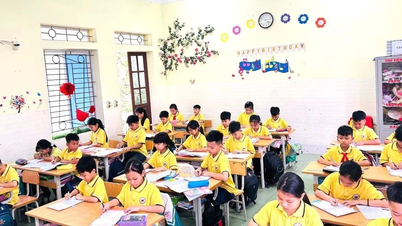

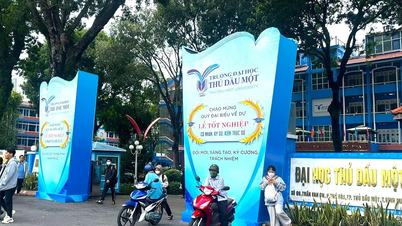



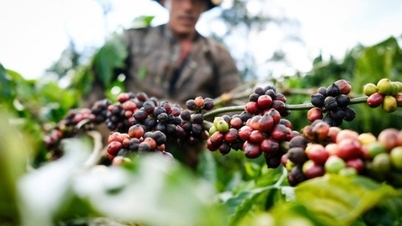









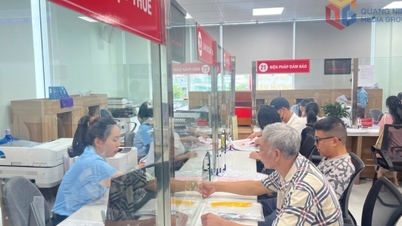








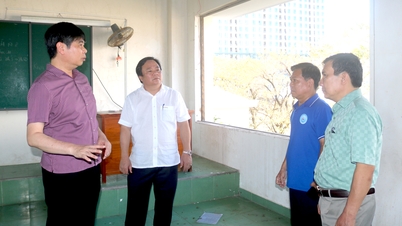







![[Video] Hue Monuments reopen to welcome visitors](https://vphoto.vietnam.vn/thumb/402x226/vietnam/resource/IMAGE/2025/11/05/1762301089171_dung01-05-43-09still013-jpg.webp)

















































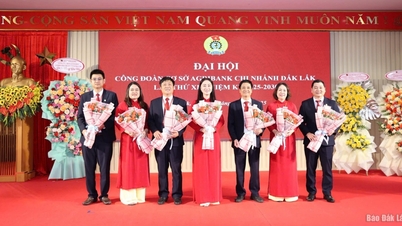

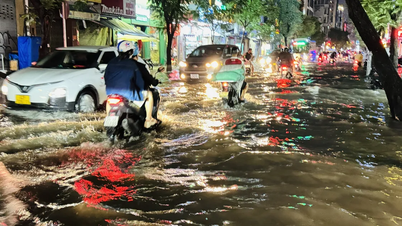


















Comment (0)